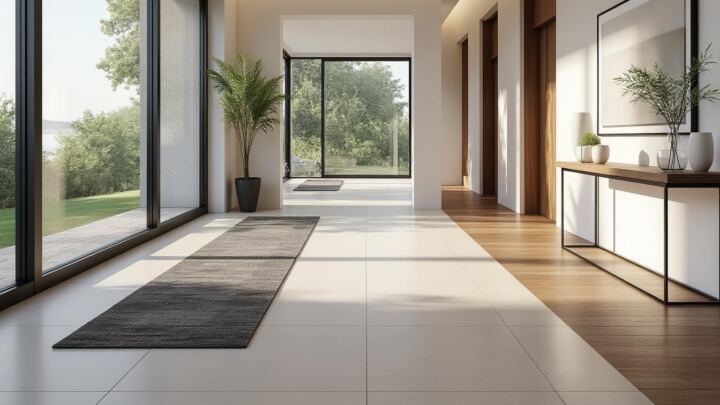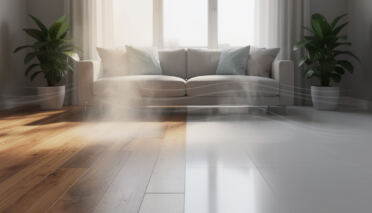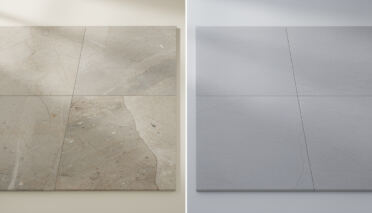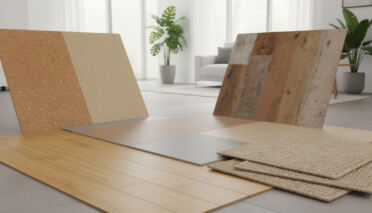When it comes to flooring options for hallways, durability is paramount. Hallways are high-traffic areas that experience frequent footfalls, spills, and even the occasional mishap with muddy pets. In 2025, homeowners are increasingly aware of the importance of choosing materials that not only look good but can withstand the rigors of daily life. This article dives deep into the various flooring options available, assessing their durability, maintenance needs, and aesthetic appeal to help you make an informed decision.
Brief
- Durability is crucial for hallway flooring due to high foot traffic 🚶♂️🚶♀️.
- Popular choices include luxury vinyl, laminate, and ceramic tiles 🏠.
- Natural stone offers a timeless appeal but at a higher cost 💰.
- Water resistance and ease of cleaning are also key considerations 🧼.
- Understanding warranties and expected lifespans helps in making a smart investment 🔍.
Choosing the Right Durable Flooring for Hallways
The first step in selecting the appropriate flooring for your hallway is understanding the various materials available and their specific advantages when it comes to durability. This section breaks down the key characteristics of popular flooring types, ensuring you make an informed decision for your bustling entryway.

Luxury Vinyl Plank (LVP)
Luxury Vinyl Plank, commonly referred to as LVP, has gained immense popularity in recent years, particularly for areas prone to moisture and wear, such as hallways. The reason? LVP offers an impressive combination of durability, style, and comfort.
- Waterproof:** LVP is fully waterproof, making it ideal for homes with pets or children who might spill drinks or track in mud.
- Durability:** With a wear layer ranging from 6 to 20 mm, it resists scratches and dents, prolonging its lifespan significantly.
- Aesthetic Appeal:** Modern LVP can mimic the look of hardwood or natural stone, giving you both beauty and practicality.
Moreover, LVP flooring can be installed quickly, with minimal downtime for busy households. Installation methods such as click-lock or glue-down options allow flexibility based on your specific needs. In short, LVP is a smart choice for any high-traffic area, particularly hallways that also need to exude style.
Laminate Flooring
Another contender in the realm of durable flooring is laminate flooring. This option is often chosen for its affordability while still offering impressive performance for busy households. With a multi-layered construction, laminate flooring provides durability against daily wear and tear.
- Engineered Strength: Laminate features a tough wear layer that protects from scratches, dents, and fading. We recommend looking for products with an AC4 or AC5 rating for areas needing extra toughness.
- Cost-Effective:** Laminate often provides the look of hardwood or stone at a fraction of the price, making it a great option for budget-conscious projects.
- Easy Maintenance:** A quick sweep and occasional mopping are usually enough to keep laminate looking fresh. Its stain-resistant surface means spills won’t linger.
Even though laminate has its downsides, such as vulnerability to excessive moisture, newer water-resistant versions are making strides in performance. Just be wary to clean up puddles promptly, and you’ll find laminate an excellent fit for hallways.
Ceramic and Porcelain Tile
When thinking of flooring for hallways, ceramic and porcelain tiles are often top contenders. These tiles are renowned for their durability and low maintenance needs, paired with an array of design options. They can handle high foot traffic while remaining stunning.
- Unmatched Durability:** Porcelain tiles are fired at high temperatures, making them exceptionally strong. They resist chips and scratches, ideal for areas with lots of activity.
- Water Resistance:** With a water absorption rate below 0.5%, porcelain tiles excel in moisture resistance. Wet shoes or spills won’t threaten their integrity.
- Design Versatility:** Available in numerous colors, sizes, and patterns, these tiles can complement any décor and create a distinct style statement.
The primary drawback is the installation process, which can be labor-intensive and might require professional help. Nevertheless, if longevity and durability are your goals, investing in quality ceramic or porcelain tiles is worth it for your hallway.
| Flooring Type | Lifespan (Years) | Water Resistance | Cost per Sq. Ft. | Maintenance Level |
|---|---|---|---|---|
| Luxury Vinyl Plank | 10-25 | Very Good | $2-$7 | Low |
| Laminate | 10-25 | Moderate | $2-$6 | Low |
| Ceramic Tile | 20-50+ | Excellent | $3-$10 | Low |
Understanding the Importance of Water Resistance in Flooring
Water resistance is one of the significant factors that should be on your radar when choosing the best flooring for hallways. After all, hallways are prone to spills, wet shoes, and other moisture-related issues, especially during rainy days or snowy winters. In this section, we will explore why choosing water-resistant options is a game-changer.

Benefits of Water-Resistant Flooring
Water-resistant flooring can save you from potential disaster. By incorporating waterproof features, you safeguard your floors against moisture that could lead to harm over time. Here are some benefits to consider:
- Prevention of Mold and Mildew:** Moisture buildup can lead to unwanted growth. Water-resistant floors help mitigate this risk, promoting a healthier home environment.
- Longer Lifespan:** Flooring that resists water tends to have an extended lifespan, making it an economical choice over time.
- No Warping or Buckling:** In areas with high humidity or potential spills, water-resistant floors won’t warp or buckle under pressure.
Investing in water-resistant flooring options not only keeps your hallway looking good but also prevents major headaches down the line. This can be a crucial factor for entering areas where you might usually worry about surface quick wear.
Natural Stone Flooring: A Timeless Classic
For those willing to invest in premium choices, natural stone flooring deserves a mention for its timeless beauty and unmatched durability. Stone options like granite, slate, and travertine offer a sophisticated aesthetic that can elevate the style of any hallway.
Key Considerations for Natural Stone
While natural stone is certainly durable and stylish, there are essential considerations to keep in mind when making your decision.
- Upfront Costs:** Natural stone tends to be one of the pricier options, but its longevity often justifies the investment.
- Installation Requires Expertise:** Proper installation is crucial to avoid future issues, which might necessitate hiring a professional.
- Regular Maintenance Needed:** While durable, natural stone requires regular sealing to prevent staining and enhance its lifespan.
Despite these considerations, the luxurious appeal and lasting quality of natural stone make it an attractive choice for discerning homeowners looking for flooring solutions that endure over time.
| Type of Flooring | Pros | Cons | Best For |
|---|---|---|---|
| Natural Stone | Durable, elegant, withstands wear | High cost, requires professional installation | Tight entryways, upscale designs |
| LVP | Waterproof, easy to clean, stylish | Can scratch easily | All homes, especially those with kids |
| Laminate | Affordable, scratch-resistant | Not suitable for wet areas | Budget-friendly renovations |
Maximizing Your Investment: Understanding Warranties and Lifespans
Last but not least, understanding what to look for regarding warranties and expected lifespans of flooring materials is crucial in making a smart investment. Whether you’re choosing Shaw Floors, Armstrong Flooring, or Pergo, knowing what these warranties cover can save you headaches later.
- Warranty Length:** Check the warranty duration. A longer warranty often indicates confidence in their product.
- What It Covers:** Different warranties cover wear and tear, stains, or even fading due to sunlight.
- Condition Requirements:** Some warranties will require specific care and maintenance for coverage to apply.
Make sure to read through and understand your chosen product’s warranty terms before your purchase. It will aid in keeping those hallways looking fresh and stylish for years to come!
What flooring is best for high-traffic areas?
The best flooring for high-traffic areas includes options like luxury vinyl plank (LVP), laminate flooring, and ceramic tile due to their durability and low maintenance.
Is water-resistant flooring necessary?
Yes, water-resistant flooring is crucial in areas like hallways, as it prevents moisture damage, mold, and extends the longevity of the floor.
How often should I clean my hallway flooring?
Regular cleaning, such as sweeping or vacuuming once a week and mopping as needed, can help maintain the appearance and longevity of your hallway flooring.
Can natural stone be used in hallways?
Absolutely! Natural stone is durable and offers a unique aesthetic, but it requires proper installation and maintenance.
What is the average lifespan of hallway flooring?
The lifespan can vary; for instance, LVP lasts between 10-25 years, whereas ceramic tile can last 20-50 years with good care.



